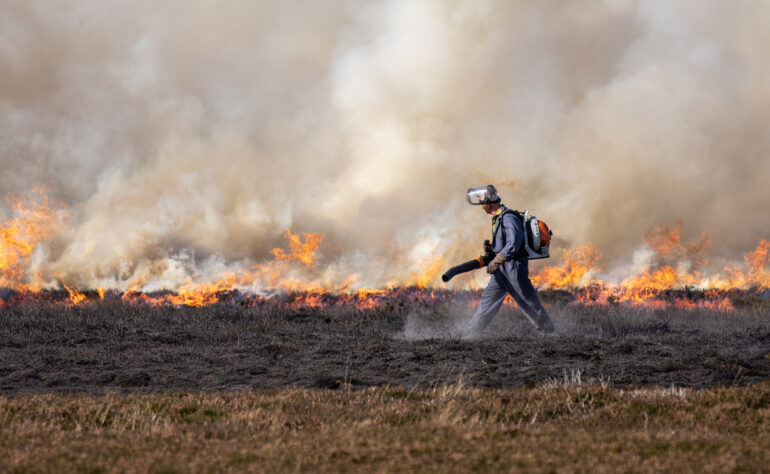Defra under secretary Rebecca Pow has confirmed that the government will review the burning of England’s carbon-rich peatlands for grouse shooting next spring, indicating that the government may be open to tightening the rules.
Pow’s comments came in response to a written question in the House of Commons, in which the Labour Shadow Minister for Climate Change Olivia Blake asked whether the government “will conduct a review…of the new licensing system for heather burning in the context of extending that system to cover all peatlands.”
In response, Rebecca Pow—who serves as Defra’s Parliamentary Under Secretary of State for the Environment—said that the government “will assess how the new regime has worked in practice” at the end of the current burning season.
Luke Steele, Executive Director of Wild Moors, said:
“Setting fire to carbon-rich peatlands for grouse shooting has no place in a climate-conscious modern world, and thankfully there is now a hint that fresh action may be taken to address the damaging practice.
“Since the start of the burning season on 1 October, there have been over 365 reported incidents of grouse shoots setting fire to England’s peatlands. It is clear that the current rules do not go far enough and an immediate and complete ban is needed.”
The nation’s peatlands store more carbon than all the forests in the UK, France and Germany combined. But grouse moor burning has become the biggest threat to some of the country’s most important conservation sites. Subsequently, only 4% of England’s upland peat is in favourable condition which is converting these important habitats from carbon stores into carbon emitters.
In recognition of the environmental damage caused by burning the government introduced a partial ban on the practice in May, acknowledging that “burning is damaging to peatland formation” and “makes it more difficult or impossible to restore these habitats to their natural state”.
However, many of Britain’s grouse moors are exempt from the new rules because they are located on degraded shallow peat, not blanket bog. This is despite them urgently needing to be restored to a healthier, deeper state to help tackle climate change, biodiversity loss and flooding.
The Climate Change Committee, which advises the government on environmental action, has recommended that grouse moor burning is completely banned to protect peatlands from further damage.
– ENDS –
Notes for editors:
- Wild Moors seeks to unlock an area of uplands the size of Greater London from grouse shooting for nature restoration by 2030. By working with communities, companies and government, Wild Moors acts as a catalyst for effective and lasting change.
- Research by the University of Leeds and others has found that grouse moor burning degrades peatland habitat, reduces biodiversity and increases flood risk.
- Print quality photographs of burning are available to download here, with full permission granted for re-publication.
